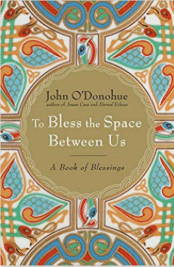I am sitting in the attic, with a navy Anya Night Club hoodie on, because the attic is cold this time of year.
Anya was a friend of my girls, back when they went to a weekly “farm school” program, and the hoodie was a bat mitzvah gift to them, because they attended Anya’s coming-of-age ceremony and its riotous follow-up celebration.
The attic is anything but riotous, which is why I am up here, where the mahogany-colored wood is old and time feels slow.
Sitting in my navy hoodie, up in the old, cold attic, I am looking for mental space to write to you. Mental space is something I’m in short supply of, and I recently decided that even though I feel extremely pressed for a variety of reasons, I must secure some kind of space for myself if I am going to survive what needs surviving.
When I awoke earlier today at Starbucks, after a quick nap in the sun, in the softest red-orange leather chair I’ve ever sat in, I realized that I’d slept for an unintended hour-and-a-half. I daydreamed for just 10 wakeful minutes, then I gathered my things and went to pick up my daughter, who was just getting out of her junior seminar class for an undergraduate degree in journalism.
Sleeping at Starbucks is probably a bit unorthodox, but this particular location is adjacent to the college dorms, and everyone is always sleepy in college and they occasionally nap in unexpected places, so I figured it was all good, and I closed my eyes in the sun.
The red-orange leather chair was big enough to curl up in entirely. In fact, two cheery blue-eyed twins had decided to co-occupy the matching chair across from mine. We were a strange little party, there at Starbucks: one tired woman waiting for her daughter and two energetic twins waiting for nothing in particular (so it seemed), sipping our mutual joy.
This is what Starbucks offers you, right on the cup: joy.
For $4.75, I’d tried to secure a little of the promise, in the form of a matcha latte. As I was sitting there in the sun, it struck me that I could have bought an entire year of Every Day Poems (which also promises, among other things, a bit of joy) for almost the same price.
Not every poem in the EDP subscription will bring a person joy, but sometimes poems come into our lives to bring us other things: insight, peace, a pause, a breath. It’s not necessary to get any of these things every time we read a poem. It’s enough to sometimes get just the thing we didn’t know we were looking for. This thing might stay with us, far past the reading.
Just yesterday, such a poem entered my life, when Basecamp’s Wailin Wong shared the final production of the Poetry at Work Rework podcast. Wailin had kindly interviewed me for the podcast. I got to talk about poems as a call from one heart to another, and poems as meeting places, and poems that become seeds to give us even the smallest of vital new ideas.
The podcast included others besides me: Wailin (of course); her colleague Shaun Hildner; Leslie, a mischievously sweet woman who works in fundraising at National Louis University and who read a pineapple poem to her colleagues on Poetry at Work Day; and Don Share of Poetry Foundation. There were also a few readers from the Basecamp staff who shared poems during “poem breaks” in the narrative.
Troy Toman, their Director of Operations, read John O’Donohue’s For One Who Is Exhausted, a Blessing—from the book To Bless the Space Between Us—and I found myself going back to the poem later. My older daughter and I listened to it together and discussed it, agreeing it was a keeper that has a lot to say to the weary of mind, body, and heart. The poem opens:
When the rhythm of the heart becomes hectic,
Time takes on the strain until it breaks;
Then all the unattended stress falls in
On the mind like an endless, increasing weight.
The light in the mind becomes dim.
Things you could take in your stride before
Now become laborsome events of will.
Weariness invades your spirit.
Gravity begins falling inside you,
Dragging down every bone.
This morning, before I took my daughter to college for her junior seminar class, I could feel that gravity, times ten. “I think my body is actually still partly asleep,” I told her. “I can’t move any faster than I’m moving. I just can’t. I’m sorry if it makes us late.”
We were ten minutes late when I dropped her off, for which I did feel sorry. I decided that, while I waited, I’d go sit at Starbucks and order something, which I never do. There in the coffee shop, I hadn’t been expecting the sun, the softest red-orange leather chair, the matcha. The phrase from O’Donohue’s poem—“for one who is exhausted”—played in my mind and, right then, I decided to pass up the chance to do a little reading for the 30 Day Writing Challenge I’m developing and, after finishing the frothy green latte, I closed my eyes. Just for a few minutes, I told myself. An hour-and-a-half later, I was contemplating Starbucks’ promise of joy, contemplating the reason for reading a daily poem, and suddenly knowing I would be writing this to you—and maybe, should it feel like a keeper, starting a whole new column called “Poems From the Coffee Shop.” Even though I am a tea drinker.
The O’Donohue poem also contains the following lines, and regardless of what you drink, they might be for you:
You have traveled too fast over false ground;
Now your soul has come to take you back.
Take refuge in your senses, open up
To all the small miracles you rushed through.
Maybe, I thought, I will take refuge in my senses at Starbucks each week, while I wait for my daughter. Neither the tea, nor the coffee (so I hear), are particularly unusual feasts for the senses. But that’s not entirely the point. The poem reminds my heart of the real reason to try out this new weekly ritual…
Gradually, you will return to yourself,
Having learned a new respect for your heart
And the joy that dwells far within slow time.
Featured photo by John Beans, Creative Commons, via Flickr. Post by L.L. Barkat.
Poetry Prompt
Choose a favorite line from anywhere in this post and use it to open or close your own “coffee shop” poem.
We sometimes feature your poems in future posts or in Every Day Poems if they are a fit! (For Every Day Poems, we would contact you for permission to feature in the inbox publication.)
____
Thoughts on Creativity & Writing, from L.L. Barkat
Buy Rumors of Water on Amazon now
- Poetry Prompt: In the Wild Secret Place - January 6, 2025
- Journeys: What We Hold in Common - November 4, 2024
- Poetry Prompt: My Poem is an Oasis - August 26, 2024




Maureen says
I can’t tell you how many times I have read that (from the section [States of Heart’) and all the other blessings in O’Donohue’s ‘To Bless the Space Between Us’. Everything in that compilation is worth reading and reading again, and those blessings have served me so well when a friend has been in need. The book is beautifully arranged, beginning with ‘Beginnings’ and concluding ‘Beyond Endings’. Anyone unfamiliar with O’Donohue’s work could not do better than to start with ‘To Bless the Space Between Us’.
Bethany R. says
I should check out that book. 🙂
L.L. Barkat says
Maureen, I’m glad to hear that the book has even more gifts to give. Do you think it would make a good book club selection for us? (Our next book club is a hard one, so we might be looking for something with a little solace in it after that.)
Maureen says
Yes. It is a book I return to again and again, for myself and for others.
Maureen says
Also see Onbeing.org with Krista Tippett:
https://onbeing.org/programs/john-odonohue-the-inner-landscape-of-beauty-aug2017/
https://onbeing.org/blog/john-odonohue-for-one-who-is-exhausted-a-blessing/
https://onbeing.org/programs/2-beauty-edge-becoming-john-odonohue/
(Sorry I am late in responding.)
Sandra Heska King says
I need that book.
Michelle says
I love the whole book, and actually have it with my journal, on the ready each morning. It was a gift from Darlene this past Christmas. I haven’t read through it cover to cover, but I skim the table of contents a few times a week and see what calls me to be read.
I’m glad for your nap at the coffee shop, and the way you are creating space wherever it can be had.
L.L. Barkat says
How lovely to receive this book as a gift! 🙂 Maybe we will do it as our next patron book club.
I think it’s especially hard to create space when you feel pressed on every side. But it becomes sort of like those team activities where they give you one paper clip and ask you to come up with 100 things you can do with it. Thinking outside the box (or inside the Starbucks) is a creative challenge, and there’s some small satisfaction in refashioning what feels arbitrary and unable to be refashioned. 🙂
Do you ever journal about the poems? (Or, any poems? 🙂 )
michelle ortega says
Most of the entries are: my morning words before the circulation gets going, dreams I remember, verses (scripture or poems) that I need to stick.
I rarely journal any other time of day, except in the middle of the night if I wake up and need to discover what’s on my mind. 🙂
Bethany R. says
What a lovely post, L.L. 🙂 Thank you for sharing this with us.
L.L. Barkat says
You’re very welcome, Bethany. Thanks for your encouraging words. 🙂
Bethany R. says
Because of your post, I looked up the full poem by John O’Donohue. I am turning over and over his stanza about the “habit of twilight.” Reminds me to come back to enjoying Simple Pleasures (like a well-deserved nap). Hm. I’m going to go write something down.
L.L. Barkat says
Such a rich phrase. I’m glad you sifted it out.
It makes me happy, too, to think of you going to write something down. I miss your writing. 🙂
Bethany says
Thank you. You just made my month. 🙂
Megan Willome says
Such a wonderful poem. Thank you.
Your Starbucks slumber reminds me of a Wednesday afternoon during The Big Move for my dad. I got home at 4 p.m. and was going to take a quick nap. I woke up at 5 a.m. the following day, thirteen hours later. Sometimes rest overtakes us.
L.L. Barkat says
Wow! 🙂 I’m pretty sure Starbucks would have made me leave before 5 am 😉
I’m a big believer in rest. Just not always in unorthodox places. But it seemed like the thing to do. And, look, I woke up with an article asking to be written.
Glad you like the poem! I was grateful to be introduced to it through Troy’s reading.
Sandra Heska King says
Oh, this. All of it.
I’m not sure I’d ever read that poem before hearing it on that podcast. I need to live with it a bit. I think I’ve been living it over the last few months.
“Gradually, you will return to yourself.” I am so glad for this hope. Also, my Fitbit is showing deeper sleep in spite of several awakenings. I’ve even started scribbling a few words on a pad again.
Big hugs.
Will Willingham says
“sometimes poems come into our lives to bring us other things.”
So this, especially in light of some of the things reflected on by others in the Basecamp podcast (very cool, by the way), seems critically important to me. In the same way a poem can have many meanings depending on who is reading, a poem can also play a variety of roles in our lives. Sometimes, it’s just a poem, some interesting image or amusing juxtaposition, or clever wordplay. And sometimes it brings to us an alarm, a consolation, a new way of seeing a difficult thing we’ve not yet sorted. It’s okay to be all of those things, to receive whatever it is our lives and a poem agree amongst themselves to bring us.
Stuart Gunter says
Coffee Shop
A fire engine screams by,
siren blaring.
A man talks to his mother
about his sister:
Have you heard from her?
She never seems to be there.
We need to get everything
out of that utility closet.
It’s a mess, he said.
His old vacuum cleaner.
A roll of insulation.
Personal things, she said.
Another couple, drinking
espresso in shot glasses:
I can fly into Tokyo
and make my way to Laos.
Just as long as you’re back
by October third.
A woman with short hair
speaks in a stentorian voice:
Some friends of ours renewed
their wedding vows. But we do
it different. We shoot
things, have big bonfires.
There was fire spitting.
In the corner, in a plush overstuffed
chair, a woman opens an envelope.
Handwritten. She turns the letter
over in her hands. Sniffs it,
feels the indentations from the point
of the pen. Opens it and starts
to read. Sips from her coffee cup,
puts her head into her hands and starts
to shake with silent, uncontrollable sobs.
We have traveled too fast over false ground.
Bethany says
Thanks for sharing this poem. I was particuraly drawn in to the line,
“feels the indentations from the point/ of the pen.”
Stuart Gunter says
You’re welcome–thank you for the feedback. I liked that bit, too. —Stuart
lynn__ says
You’ve inspired this prose poem and a possible amazon order of O’Donohue’s book 🙂
two mature women,
we followed each other
around our small town
from pharmacy to the
grocery store; probably
visited same hair stylist
(who is also my niece)
by shape of our haircuts
smiled, exchanged names
by parked grocery carts
mourned recent loss of
local coffee shop which
offered espresso, lattes,
(and my favorite chai tea)
along with scones, tarts,
and crusty baguettes.
why couldn’t our town
sustain the business?
would anyone start it
again (sans machines,
a larger investment)
we need a place like it
although obviously we
didn’t patronize enough
better than starbucks,
unique small town shop
with drive-up window
and friendliest service
has me contemplating
the reason for reading
(or even for writing) a
daily poem, served hot.
Bethany says
Lynn, thanks for sharing your poem here. I like how this comes full circle at the end in contemplating about reading and writing poetry. 🙂
lynn__ says
Thanks, Bethany! I like the serendipity of a haircut, chance meeting, conversation about coffee shop, and reading this prompt came together today 🙂
Laura Lynn Brown says
Maybe time felt slow in the coffee shop too. What a gift, to be able to sleep in peopled solitude for an hour and a half, held in a red-orange chair. (Something I miss from Little Rock: the red-orange chairs in the River Market, also a place of rest amid people coming and going and eating.) You must have needed it. Even if the matcha cooled while you slept.
When the rhythm of the heart becomes hectic,
Time takes on the strain until it breaks;
That second line makes me think of a violin string breaking.
This might be a poem to memorize. It’s a slow poem. I like the way you slowed our taking it in, and how that last line strings together your beginning.
Also, about Every Day Poems … the accompanying art often draws me in or shows me something I might not have noticed in the poem. That’s one reason I keep subscribing.
L.L. Barkat says
The image of a violin string breaking. Oh.
And I agree this could make a good memory poem. (Megan, did you hear? 🙂 )
Thanks for the note about the art. I do take a long time finding just the thing. And I try to think of it as a little gift I’m giving subscribers along with the poem. 🙂